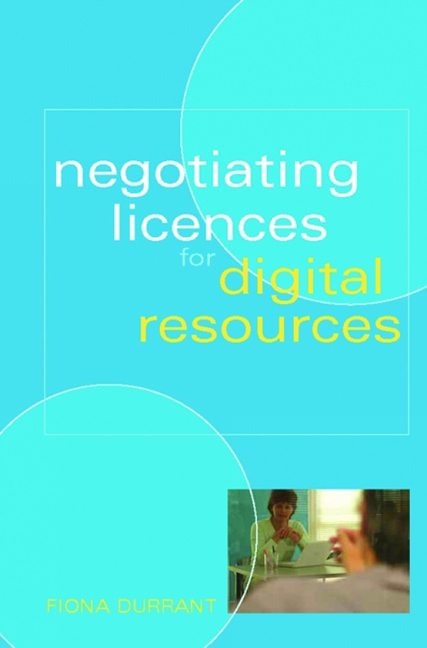Book contents
- Frontmatter
- Contents
- Acknowledgements
- Introduction
- 1 Preparation
- 2 The contract
- 3 Negotiation
- 4 Staff development and communicating negotiation outcome
- 5 Conclusion
- References and further reading
- Appendix 1 Frequently asked questions
- Appendix 2 Negotiation timeline
- Appendix 3 Personal negotiation experience
- Index
- Frontmatter
- Contents
- Acknowledgements
- Introduction
- 1 Preparation
- 2 The contract
- 3 Negotiation
- 4 Staff development and communicating negotiation outcome
- 5 Conclusion
- References and further reading
- Appendix 1 Frequently asked questions
- Appendix 2 Negotiation timeline
- Appendix 3 Personal negotiation experience
- Index
Summary
Who is this book for?
Negotiating is something people do in everyday life. Authors negotiate with their publishers for extensions to deadlines, buyers of houses negotiate with the vendor or estate agent, employees negotiate with their employers about the terms of their engagement. Information, however, has its own quirks and relationships, which, when understood in depth, can lead to getting the best deal for both purchaser and vendor. This book will help information professionals in all sectors, and all jurisdictions, on how to get the best deal for their organization (see Figure 0.1). It can act as a reference tool for experienced negotiators or as a primer for those who have never before been involved in the process.
Online subscriptions range from e-journals to multi-modular databases, from proprietary content to collations of third-party materials. What these online resources have in common is that someone has to decide to buy them, actively purchase them, manage them and then use them. Sometimes these roles are not performed by the same person, but each role has a contribution to make in the negotiation process (see Table 0.1).
The key concepts behind the negotiation of online subscriptions have few sectoral or geographical borders. The tips and methods that will be found in the following chapters will aid any individual or team involved in the purchase of electronic media, ranging from the librarian and knowledge professional to procurement officers and publishers. The sole librarian will benefit as much as the head of a large department. It may be that a sole practitioner in a profession has to purchase online resources and to keep overheads as low as possible. This title will benefit them and those for whom they do work.
This book can be used by mentors to involve junior members of staff in the negotiation process, and it can be used by the users of the electronic products to ensure that they are providing useful feedback about the resources they are using to the person who is going to be doing the negotiation. The processes explained in this book can apply to individual contracts as well as multi-site international licences.
- Type
- Chapter
- Information
- Negotiating Licences for Digital Resources , pp. xi - xviiiPublisher: FacetPrint publication year: 2006

